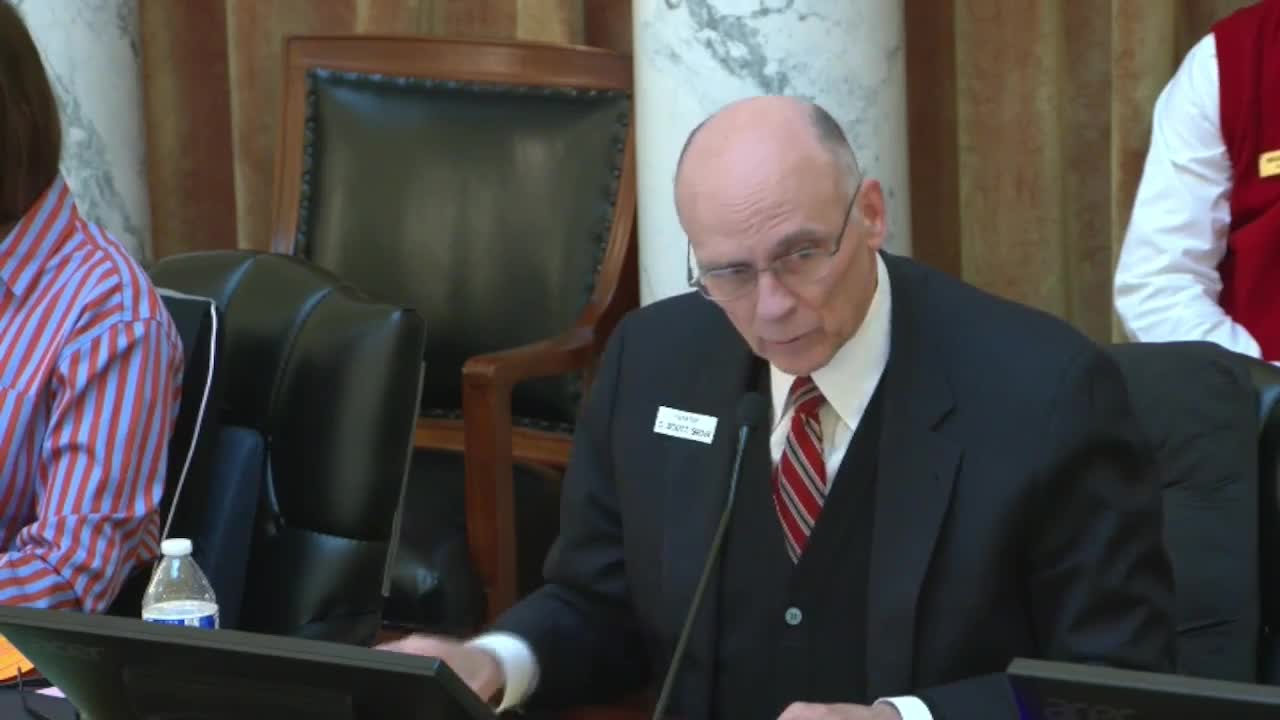Split committee over federal home-energy rebates; original OMER package stalled in committee tally, chairs plan to send to House
Get AI-powered insights, summaries, and transcripts
Subscribe
Summary
Lawmakers debated a large federal home-energy rebates appropriation for Idaho and split on a substitute motion. The original package drawing federal grant authority drew intense floor debate; committee tallies left the motion without a clear House majority, and co-chairs said they would carry the matter forward to the House first.
Committee members spent an extended period debating whether to accept federal funds from the Inflation Reduction Act to administer home energy rebate and electrification programs in Idaho and how much state involvement to authorize.
The Office of Energy and Mineral Resources requested federal appropriation authority exceeding $24 million to administer the Home Energy Rebate and Appliance Rebates programs; the governor also recommended a small general-fund addition ($481,100) for a State Energy Council position. The JFAC work group split on two competing motions: one that accepted the full federal funding package and operating authority (the work-group original motion) and a substitute that limited the state’s acceptance to the smaller, state-funded Speed Council item. The substitute failed on a recorded vote; the original motion later failed to carry a majority in committee because the House side did not reach a majority on that roll call.
Committee members who supported the federal funding said Idaho should accept the federal funds it has earned and that the programs would conserve energy, create jobs for local installers and keep federal dollars in Idaho. Opponents raised concerns about federal program design, the fiscal effect of added federal-era spending and the potential for federal conditions or energy codes to flow from program participation.
“We’re paying those federal taxes, all of us are today, regardless. All we’re voting on here today is whether or not Idaho is going to get our share of that,” Representative Petzke said during debate in favor of accepting the federal funding.
Representative Tanner and others argued the federal program contains policy and code implications that the Legislature should not adopt without additional safeguards. After votes produced a tie or no clear House majority on the final motion, committee co-chairs said they would carry the matter to the House first so both chambers can consider how to proceed. A committee staff analyst described the federal appropriation as formula-allocated federal grant authority for home energy rebates and indicated the bulk of spending would come from federal grants rather than state general fund.
Why it matters: The decision determines whether Idaho’s agencies will administer federally funded home-efficiency and electrification rebate programs in the state. If Idaho declines, federal funds may flow to other states; if Idaho accepts, the state will need administrative capacity and a process for implementing the rebates.
What’s next: Committee chairs indicated the package will be forwarded to the House for consideration first after committee tallying left the motion without a clear House majority on the floor. The agency also had related language approved by unanimous consent addressing federal-fund restrictions and reporting in the event federal funding is reduced or revoked.
Ending: The split reflected broader tensions in state legislatures over accepting federal funds tied to programmatic requirements, with proponents urging capture of funds Idaho has already earned and opponents warning of long-term policy consequences.
